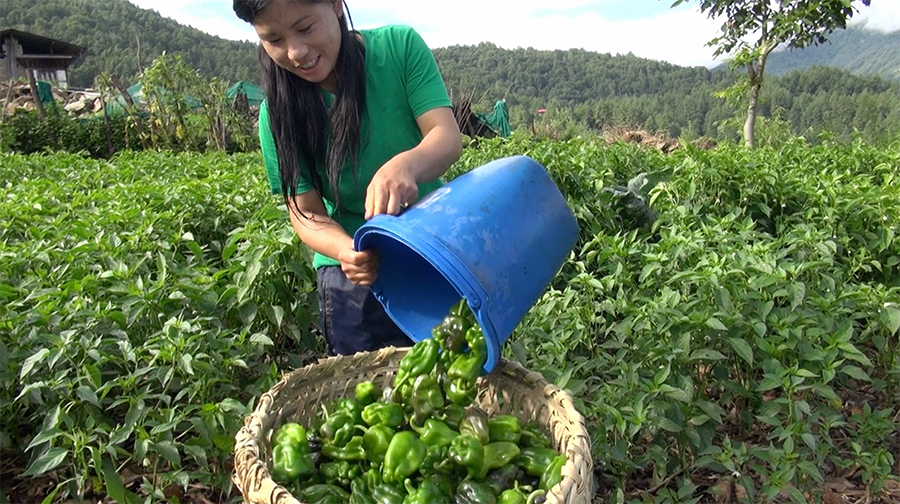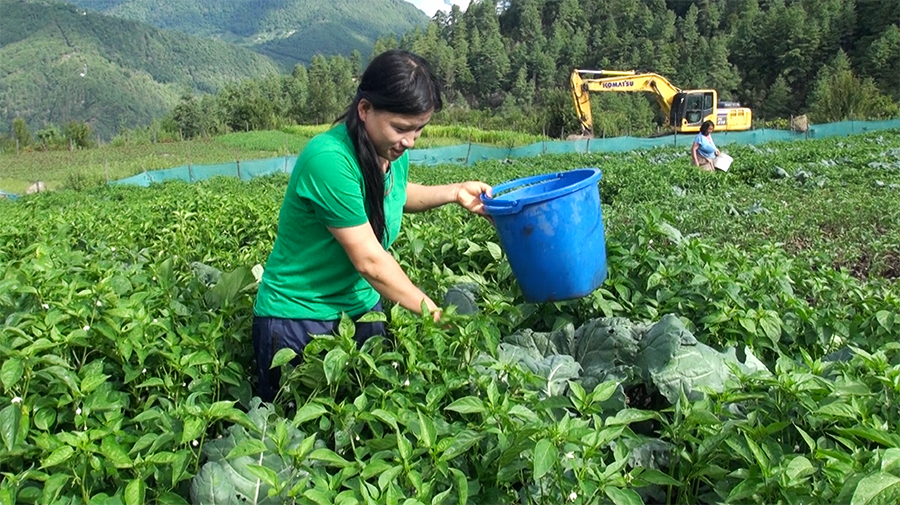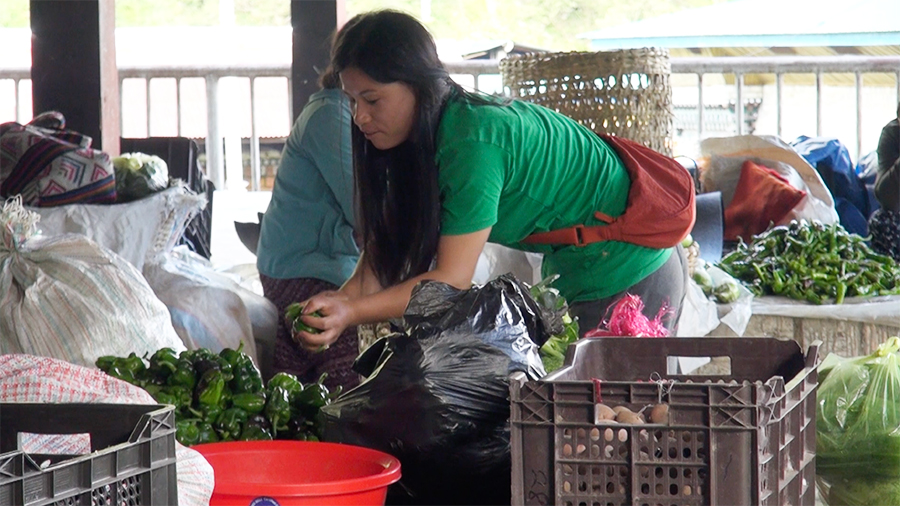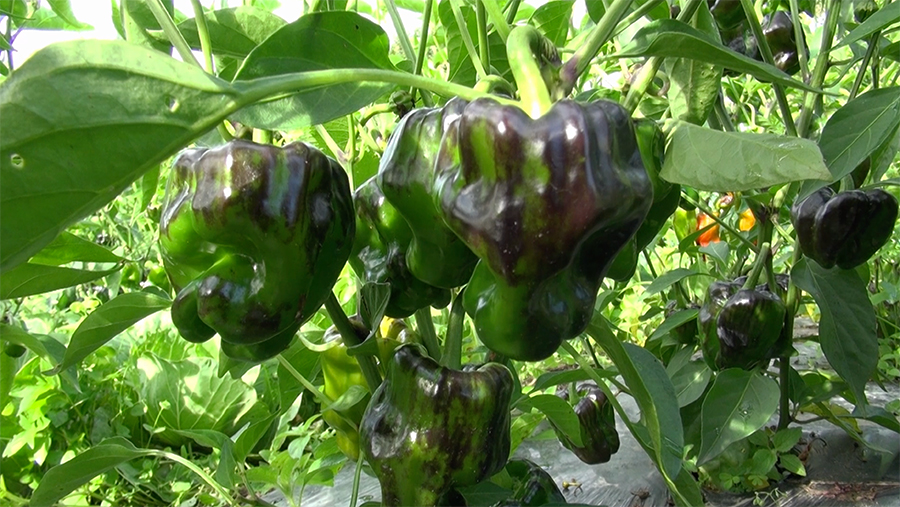 Financial independence allows women to better support their families with education, healthcare and overall wellbeing. In Baney-Bimkhar Chiwog in Trashi Yangtse, while most men are engaged in other work, women stay back and focus on growing vegetables, especially Urka Bangla chillies. This unique species of chilli has become a main source of income for the women in the community. Each year, they earn between Nu 100,000 to 300,000 annually from selling the spice.
Financial independence allows women to better support their families with education, healthcare and overall wellbeing. In Baney-Bimkhar Chiwog in Trashi Yangtse, while most men are engaged in other work, women stay back and focus on growing vegetables, especially Urka Bangla chillies. This unique species of chilli has become a main source of income for the women in the community. Each year, they earn between Nu 100,000 to 300,000 annually from selling the spice.
 Thirty-one-year-old Dechen Tshomo from Bimkhar in Yangtse Gewog is busy harvesting Urka Bangla chilli. Her family helps her with the work, especially during harvest time.
Thirty-one-year-old Dechen Tshomo from Bimkhar in Yangtse Gewog is busy harvesting Urka Bangla chilli. Her family helps her with the work, especially during harvest time.
Every morning, she picks about a basketful of chillies and prepares them for the market in Yangtse town.
“Most of the women here grow vegetables, but we mainly focus on Urka Bangla chilli because it’s our main source of income. In winter, we don’t have much to sell. So, we save our earnings for winter expenses and to support our children.”
Like Dechen, most women in the village are engaged in chilli cultivation.
They have formed a group. They hire a vehicle to transport their fresh chilli harvests to the vegetable market in Yangtse town.
 Depending on market demand, they earn between Nu 70 to 200 per kilogram.
Depending on market demand, they earn between Nu 70 to 200 per kilogram.
“Compared to other districts, Trashi Yangtse is known for Urka Bangala chilli. That’s why we focus on growing it. When the harvest is poor, we earn around Nu 60,000 to 70,000. But when the harvest is good, we can make up to Nu 200,000 or even 300,000,” said Jamba Deki, Bimkhar, Yangtse Gewog, Trashi Yangtse.
For early production, farmers raise chilli seedlings in greenhouses and later transplant the seedlings to open fields.
They grow the spice three times a year, with the main Urka Bangala chilli season running from July to October.
 Last year, the agriculture office, with support from the Commercial Agriculture and Resilient Livelihoods Enhancement Programme (CARLEP), provided mulching plastic to help reduce weed growth and improve growing conditions. This support has helped boost the production.
Last year, the agriculture office, with support from the Commercial Agriculture and Resilient Livelihoods Enhancement Programme (CARLEP), provided mulching plastic to help reduce weed growth and improve growing conditions. This support has helped boost the production.
In Bimkhar Chiwog, around 40 households cultivated Urka Bangla chilli on 30 acres of land last year, producing 48 metric tonnes. Farmers are expecting a good yield this year, as both the chilli plants and weather conditions have been favourable.
Sonam Darjay, Tashi Yangtse
Edited by Sonam Pem










